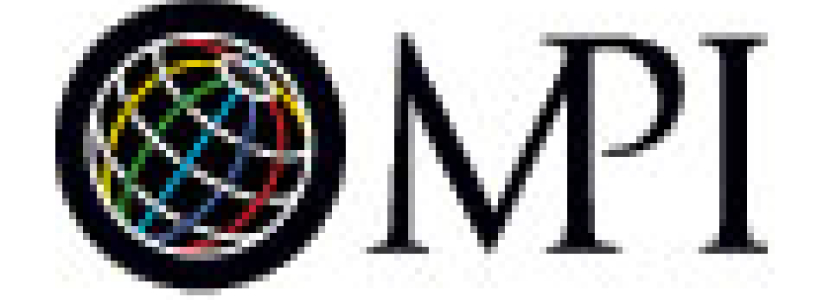
One of the greatest benefits (and threats) of the Net is the way it has opened opportunities for amateurs to work alongside (and sometimes replace) professionals. Popular teen bloggers earn front row seats at New York’s Fashion Week, displacing editors of formerly prestigious journals; camcorder-armed filmmakers compete with the major studios via YouTube; and professional intermediaries from real estate agents to stockbrokers have been replaced by Web sites that give people the ability to do things for themselves.
The people have crashed the gates of professionalism, penetrating the formerly sacrosanct boundaries protecting elites of all industries from challenges from below. Until the Internet, most professions were at liberty to create their own barriers to entry, based on education and experience or even adherence to a certain value system or code of conduct. Lawyers have the Bar, advertisers join the American Association of Advertising Agencies and journalists join the Press Club.
These associations—your associations, for the most part—were most likely created to maintain standards across your fields, promote networking and guarantee a certain level of expertise among your peers. Even those that were created for political reasons (such as the American Dental Association, which was formed to promote the use of silver amalgam as a filling material) eventually became dedicated to extending their members’ interests and expertise. Your associations make you better at what you do.
To the newly minted, Net-enabled amateurs, however, your associations, your professionalism and even your expertise are obsolete. They believe their newfound access to the tools and information that you use to do your job makes them as good at doing your job as you are. As one blogger asked me, “What makes you think a professional is any better at being a journalist than anyone with a blog?”
He has a point…to a point. The field of journalism, for example, has been greatly enhanced by a world in which there are mobile phones with cameras practically everywhere. When a story breaks on the streets of Myanmar, there’s inevitably someone there to capture it. Likewise, if the conventional financial press is incapable of challenging conventional financial wisdom, a blogger can often be the first to expose scandalously poor stewardship of the markets.
Larger groups working together online can develop a browser (Firefox) that challenges the best of Silicon Valley, an operating system that challenges Windows (Linux) and the world’s most used encyclopedia (Wikipedia). Many of the people working on these projects are themselves experts—top programmers, researchers and scientists—who are doing these projects in their spare time. And we’re all better for their achievements.
At the same time, however, the rise of amateur activity online has given many people an exaggerated sense of their own competencies—and a diminished sense of yours. If regular folk can write an encyclopedia, they figure, what’s stopping them from doing anything? As is often the case with new technology, people have mistaken their access to your tools for the competency to use them.
In such an environment, your associations appear to be elitist, purely symbolic and utterly artificial. They are just means of maintaining your undeserved monopoly over your industries. As much as amateurs may want to be noticed and included in the ranks of professionals, they would probably be almost as gratified to see your associations collapse under their own weight. If you can’t join ‘em, beat ‘em.
And the issues facing your organizations are just a reflection of what your members have been contending with for almost a decade now. Their expertise is hardly valued anymore, if it is even recognized. With few exceptions (airplane pilots, brain surgeons), our vocations are turning into hobbies. Sadly, people don’t get paid for hobbies.
The answer, of course, is not to discourage amateurism, but to welcome it. Only by welcoming the amateurs, and educating them, do we stand a chance of showing them how much better we are at doing whatever it is we do. By welcoming them, we show them that they are a part of our culture—and in doing so, affirm our own positions at the center of activity. Political conventions, in danger of becoming self-congratulatory snooze fests, reinstated their own relevancy by inviting bloggers into the pressroom. Comic book publishers know that almost every reader thinks he is capable of writing or drawing just as well as the professionals. That’s why comic conventions dedicate significant resources to workshops and portfolio reviews for anyone who shows up.
The Net may have given people the false impression that they are competent at everything, but you are the only ones who can correct that impression. Your events are now more important than ever, because they offer you two real strategies for promoting your professionalism.
The first is to make them as transparent as possible, revealing the depth of thought and competency actually required to participate. Let would-be homeowners see the kinds of calculations legitimate real estate agents make about property values and tax consequences. Let bloggers see what it really means to verify a source, or deconstruct some talking points.
The second is to embrace a culture of expertise. Make your members better at what they do, help them dedicate to learning throughout their careers, bring them the latest techniques and breakthroughs so they don’t have to learn about them from a client, an amateur competitor or a Google search.
After all, if your organization is no better at serving your constituency than the Internet, your constituents may just decide to serve themselves. One+
DOUGLAS RUSHKOFF is the author, most recently, of Life Inc: How the world became a corporation and how to take it back. He teaches media studies at The New School in New York. Contact him at rushkoff@rushkoff.com.




